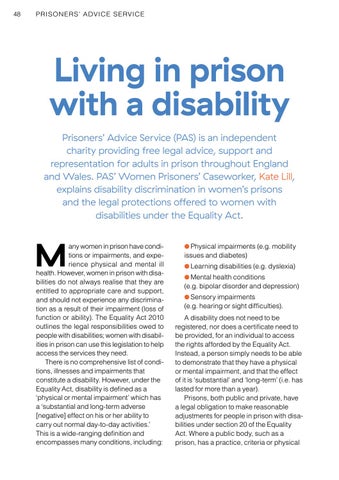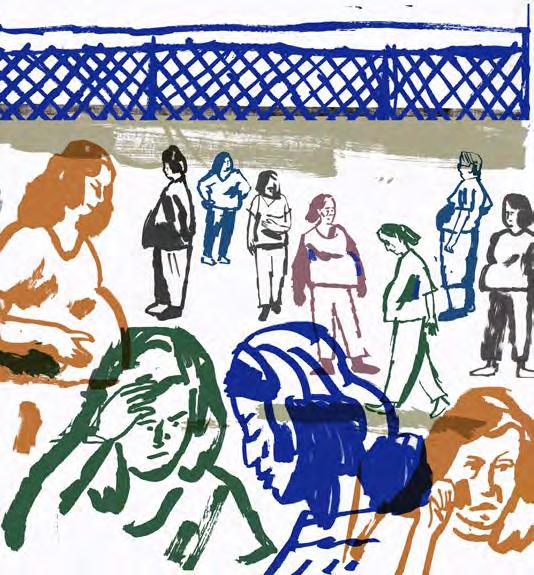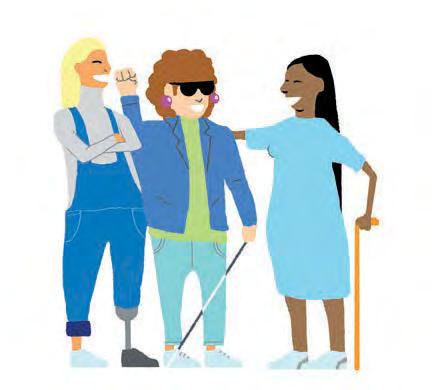48
PRISONERS’ ADVICE SERVICE
Living in prison with a disability
Words: Prisoners’ Advice Service (PAS) is an independent charity providing free legal advice, support and representation for adults in prison throughout England and Wales. PAS’ Women Prisoners’ Caseworker, Kate Lill, explains disability discrimination in women’s prisons and the legal protections offered to women with disabilities under the Equality Act.
M
any women in prison have conditions or impairments, and experience physical and mental ill health. However, women in prison with disabilities do not always realise that they are entitled to appropriate care and support, and should not experience any discrimination as a result of their impairment (loss of function or ability). The Equality Act 2010 outlines the legal responsibilities owed to people with disabilities; women with disabilities in prison can use this legislation to help access the services they need. There is no comprehensive list of conditions, illnesses and impairments that constitute a disability. However, under the Equality Act, disability is defined as a ‘physical or mental impairment’ which has a ‘substantial and long-term adverse [negative] effect on his or her ability to carry out normal day-to-day activities.’ This is a wide-ranging definition and encompasses many conditions, including:
l Physical impairments (e.g. mobility
issues and diabetes) l Learning disabilities (e.g. dyslexia) l Mental health conditions
(e.g. bipolar disorder and depression) l Sensory impairments
(e.g. hearing or sight difficulties). A disability does not need to be registered, nor does a certificate need to be provided, for an individual to access the rights afforded by the Equality Act. Instead, a person simply needs to be able to demonstrate that they have a physical or mental impairment, and that the effect of it is ‘substantial’ and ‘long-term’ (i.e. has lasted for more than a year). Prisons, both public and private, have a legal obligation to make reasonable adjustments for people in prison with disabilities under section 20 of the Equality Act. Where a public body, such as a prison, has a practice, criteria or physical

















